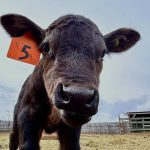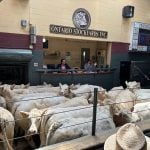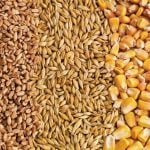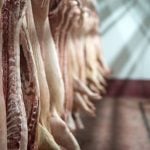Having wrapped up discussions on mandatory country-of-origin labeling (COOL) in Washington, D.C., Agriculture Minister Gerry Ritz said Canada will consider retaliatory measures of up to $1 billion per year if the U.S. doesn’t comply with World Trade Organization requirements.
Speaking Tuesday on a conference call with reporters, Ritz said he and U.S. Department of Agriculture Secretary Tom Vilsack “had a very frank yet respectful discussion on bilateral issues.”
Asked if he thought the U.S. would meet the deadline, he said “I’m not holding my breath, but I’m certainly hopeful.”
Read Also
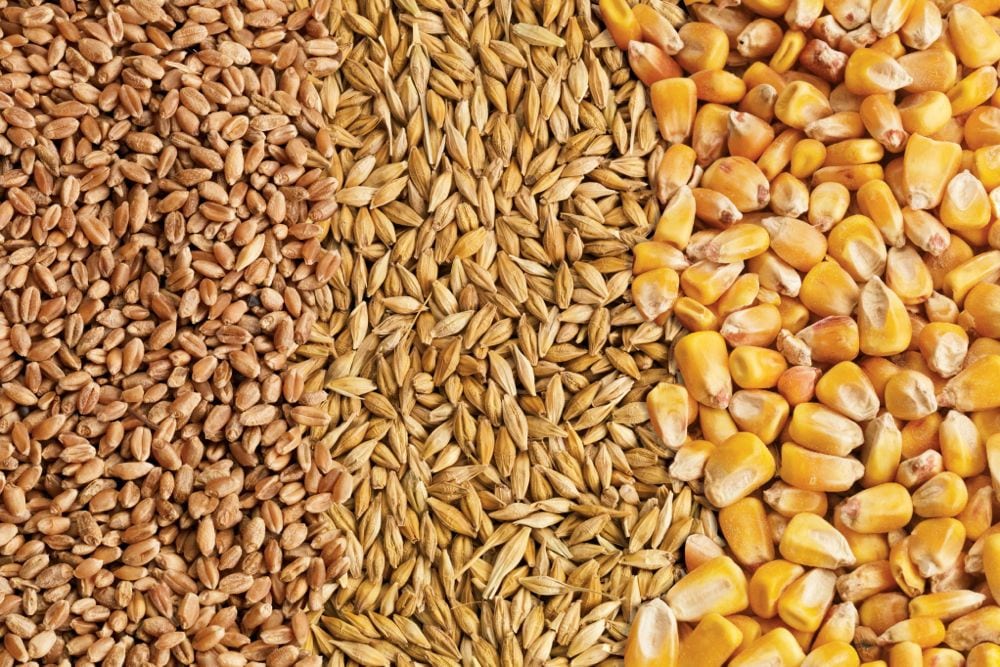
Feed Grains Weekly: Price likely to keep stepping back
As the harvest in southern Alberta presses on, a broker said that is one of the factors pulling feed prices lower in the region. Darcy Haley, vice-president of Ag Value Brokers in Lethbridge, added that lower cattle numbers in feedlots, plentiful amounts of grass for cattle to graze and a lacklustre export market also weighed on feed prices.
The U.S. introduced mandatory COOL for meat in 2009. Canada and Mexico successfully challenged COOL at the World Trade Organization’s Dispute Settlement Body in 2011 — a decision upheld last year by the WTO’s Appellate Body.
Washington now has until May 23 to comply or face possible retaliatory action.
The U.S. government last month proposed a different set of COOL rules requiring even more specific labels for meat and other affected products. Ritz said the government is “extremely disappointed” with the regulatory changes Washington has proposed.
“The changes proposed by the U.S. will not bring it into compliance with its WTO obligations. In fact, these changes will increase the discrimination against exports of cattle and hogs from Canada, and increase the damages to Canadian industry as well as American industry,” Ritz said.
Canada will consider retaliatory action of the U.S. doesn’t live up to its obligations by May 23, Ritz said. Canadian exports of beef and pork to the U.S. have dropped sharply since COOL was introduced because it forced U.S. packers to segregate imported livestock from U.S. animals.
The beef and pork sectors have identified $1 billion a year in losses since COOL became mandatory, Ritz said. “So we’re looking for those kinds of dollars in retaliatory action.”
The federal government will put together “an extensive list working with (Canada’s) department of foreign affairs and trade, making sure that we’re able to address the billion-dollar-per-year shortfall that our livestock industry has identified,” Ritz said.
“It’s going to take a number of initiatives to reach that type of a dollar value,” he added.
The Canadian delegation also met with the American Meat Institute, which “recognizes that the industry has already suffered major fallout from COOL in lost production and jobs in the United States,” said Ritz.
American livestock producers, feedlots, finishers, and processors can maximize efficiencies by accessing Canadian livestock, Ritz said, making both countries more competitive.
“Forcing unnecessary costs onto the meat supply chain, such as what is happening under COOL, has done the complete opposite.”
Canadian and U.S. farmers alike “depend on free and unfettered trade for their livelihoods,” he said.
Ritz’s next stop is Mexico to discuss COOL and each country’s strategy moving forward.
The minister said he’s not worried about starting a trade war.
“We do recognize the fact that these types of squabbles will happen with the two largest trading partners in the world looking at each other respectfully. But at the end of the day, I’m here to tell you we will do, as a government, what is the right thing to do for our livestock sector.”
— Lisa Guenther is a field editor for Grainews at Livelong, Sask. Follow her @LtoG on Twitter.
Related stories:
Canada rips USDA’s plan for more specific COOL labels, March 8, 2013
WTO appeal body upholds ruling against COOL, June 29, 2012
WTO rips U.S. COOL law in win for Canada, Nov. 18, 2011











